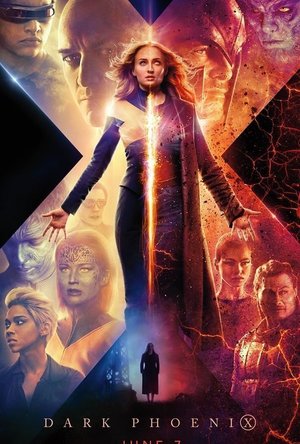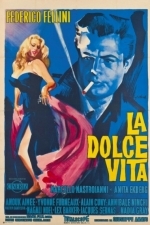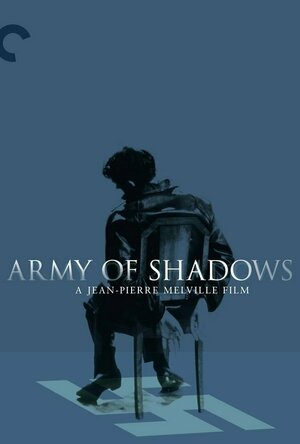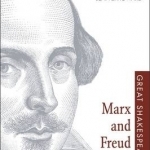
Marx and Freud
Crystal Bartolovich, David Hillman and Jean E. Howard
Book
This volume looks at Marx and Freud, who, though not 'Shakespeareans' in the usual academic or...

Slow Motion Cam Video Editor
Photo & Video and Social Networking
App
SlomoLapse was created to adjust the speed of your videos. You can apply both slomo & timelapse on a...

The Babar Collection: Five Classic Stories
Book
This charming collection of five French illustrated classics follows the adventures of the world's...

Romantic Things: A Tree, a Rock, a Cloud
Book
Our thoughts are shaped as much by what things make of us as by what we make of them. In Romantic...
Gareth von Kallenbach (980 KP) rated X-Men: Dark Phoenix (2019) in Movies
Jul 2, 2019
Dark Phoenix begins on a small country road where a very young Jean Grey is arguing with her parents over what music to listen to. In traditional parent fashion, her mother reminds her that the driver is the one who chooses the music and when she is old enough to drive she can choose her own music. This small disagreement turns into a deadly confrontation, when the young Jean, unable to control her vast powers causes her mom to fall asleep at the wheel, resulting in a head on collision killing both her parents. The doctors are amazed that this young girl has survived without a single scratch and a young Charles Xavier arrives to take her to a place where she can be safe.
Fast Forward to the year 1992 where the space shuttle Endeavor, on a routine mission, encounters a cosmic entity that cripples it in space. The X-men, who are now looked at as heroes by most of the world are tasked to bring the astronauts safely home, it’s a dangerous mission, but one that Charles feels will further cement the hero status of his team and continue to grow trust between mutants and humans alike. The mission goes surprisingly without incident until Jean and Night Crawler attempt to rescue the final remaining astronaut from the doomed shuttle. Night Crawler quickly teleports the astronaut to safety, but Jean is caught by the full force of the cosmic entity, absorbing it completely and destroying the shuttle. The team scrambles to locate her, and with the help of Night Crawler are once again able to bring her back to the safety of the X-Jet. Relieved that she has somehow miraculously survived the encounter the team is unaware that Jean and themselves will never be the same again.
As we’ve come to expect from the previous X-men movies, a star-studded cast leads the way. Familiar cast members such as Jennifer Lawrence (Raven), Tye Sheridan (Cyclops) and James McAvoy (Charles Xavier) are joined once again by Sophie Turner as the iconic Jean Grey. Sophie does an incredible job at bringing out both the uncertainty in her character and the extreme anger and rage that flows through her. Unfortunately for such a major character the movie only briefly touches the surface of who Jean Grey really is. The movie, even from the start tends to focus on Jean as a dangerous and angry young lady, unable to control her emotions which will ultimately open the doorway to her alter ego Dark Phoenix. The movie unfortunately treats her as a one-off character and skips most of her back story choosing to focus only on her Dark Phoenix personality. This leaves the audience with no understanding of the person she was prior to the transformation, only seeing Jean as an uncontrollable child who has now become an uncontrollable adult with “off the chart” powers. While Charles and other members of the team try to assure those around them (and the audience seated in the theaters) that Jean is a good person, a person worth saving, there is very little in the movie that allows us to sympathize with her plight. It ultimately villainizes her and leaves much of the cast (and the audience) wondering whether destroying her is the right choice for all humankind.
Visually Dark Phoenix is a masterpiece, whether it’s the awe-inspiring deepness of space, or the incredible visual effects as the mutants square off against each other with their powers. Buildings topple, subway cars are pulled from underground and general mayhem takes the stage. This is certainly one of the more action-packed movies in the series and getting the opportunity to watch some of our favorite mutants square off against one another is enough to excite even the ones least interested in the franchise.
Dark Phoenix as one might expect is also one of the darkest of the x-men movies. Unlike its other Marvel film counterparts, there is no levity in the movie at all. There are scenes that are heartwarming, but the movie takes itself very seriously. Even in a similarly dark Marvel movie Endgame there were moments that would make you laugh regardless of how dire the situation was, Dark Phoenix is not like this at all. It carries a weight to it that ensures that not only the people on screen, but those in the audience understand how truly dire the situation is. It detracts a bit from the spirit of the source material it derives from and could potentially alienate its core audience. This is a very adult movie, that deals with some very adult themes and parents might want to think twice before taking their youngest to see this film. With the X-Men franchise finally joining the MCU, it’ll be interesting to see how movies down the road treat these characters.
Dark Phoenix represents the end of an X-Men era that has existed in both its original and First-Class installments for over twenty years. The acquisition of Fox by Disney now brings this venerable franchise to the MCU family along with its cast of seemingly endless characters. While the movie is certainly better than Apocalypse, it can’t quite reach the heights of either First-Class or Days of Futures Past. The Dark Phoenix storyline does a good job staying closer to its comic book roots than its previous outing but rushes the origin and character development of Jean far more than she deserves. It’s a fine ending to the series as a whole but can’t quite deliver in all the ways I hoped it would.
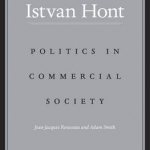
Politics in Commercial Society
Book
Scholars normally emphasize the contrast between the two great eighteenth-century thinkers...
Olivier Assayas recommended La Dolce Vita (1960) in Movies (curated)
Olivier Assayas recommended Army of Shadows (L'Armée des ombres) (1969) in Movies (curated)
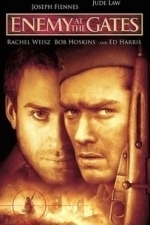
Enemy at the Gates (2001)
Movie Watch
Vassili (Jude Law) is a young Russian sharpshooter who becomes a legend when a savvy polical officer...
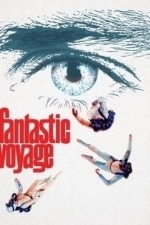
Fantastic Voyage (1966)
Movie Watch
At the height of the cold war, both sides have developed technology to shrink matter, but only for...
